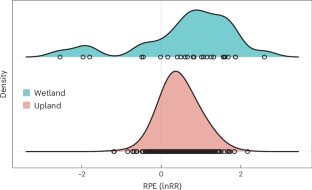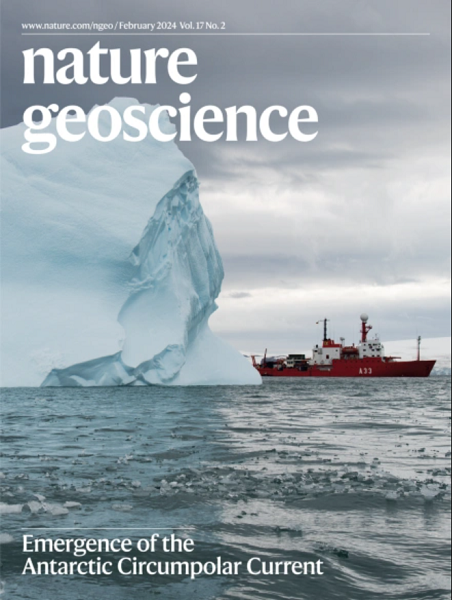Redox control on rhizosphere priming in wetlands
IF 16.1
1区 地球科学
Q1 GEOSCIENCES, MULTIDISCIPLINARY
引用次数: 0
Abstract
Rhizosphere priming describes a positive or negative change in the rate of soil organic matter decomposition caused by root activity and represents an important terrestrial soil–climate feedback. Few studies have investigated rhizosphere priming in wetlands, despite their disproportionate role in the global soil carbon budget. Here we present a literature analysis to show that both positive and negative rhizosphere priming can be much stronger in wetland than upland ecosystems. We argue that differences in plant–soil microbial interactions between dominantly oxic and anoxic soil environments induce the different degrees of rhizosphere priming effects. A conceptual framework is proposed in which wetland plants control soil redox status by acting as sources of both electron donors and acceptors, thereby influencing soil carbon stability through interactions with microbial communities. We identify key uncertainties in the mechanistic and quantitative understanding of wetland rhizosphere priming and demonstrate how priming could govern wetland soil carbon dynamics and ecosystem stability in response to climate change. Rhizosphere priming effects are stronger in wetland soils than in upland soils due to the greater variation in the redox condition in the rhizosphere, according to a data analysis of existing observations.


湿地根际诱导的氧化还原控制
根际启动描述了根系活动引起的土壤有机质分解速率的正或负变化,代表了一种重要的陆地土壤-气候反馈。尽管湿地在全球土壤碳收支中起着不成比例的作用,但很少有研究调查湿地的根际启动。本文通过文献分析表明,湿地的根际正灌丛和负灌丛都比旱地强得多。我们认为,植物-土壤微生物相互作用在强氧和缺氧土壤环境中的差异导致了不同程度的根际启动效应。提出了一个概念框架,其中湿地植物作为电子供体和受体的来源来控制土壤氧化还原状态,从而通过与微生物群落的相互作用影响土壤碳的稳定性。我们确定了湿地根际诱导机制和定量理解中的关键不确定性,并展示了诱导如何控制湿地土壤碳动态和生态系统稳定性以响应气候变化。
本文章由计算机程序翻译,如有差异,请以英文原文为准。
求助全文
约1分钟内获得全文
求助全文
来源期刊

Nature Geoscience
地学-地球科学综合
CiteScore
26.70
自引率
1.60%
发文量
187
审稿时长
3.3 months
期刊介绍:
Nature Geoscience is a monthly interdisciplinary journal that gathers top-tier research spanning Earth Sciences and related fields.
The journal covers all geoscience disciplines, including fieldwork, modeling, and theoretical studies.
Topics include atmospheric science, biogeochemistry, climate science, geobiology, geochemistry, geoinformatics, remote sensing, geology, geomagnetism, paleomagnetism, geomorphology, geophysics, glaciology, hydrology, limnology, mineralogy, oceanography, paleontology, paleoclimatology, paleoceanography, petrology, planetary science, seismology, space physics, tectonics, and volcanology.
Nature Geoscience upholds its commitment to publishing significant, high-quality Earth Sciences research through fair, rapid, and rigorous peer review, overseen by a team of full-time professional editors.
 求助内容:
求助内容: 应助结果提醒方式:
应助结果提醒方式:


